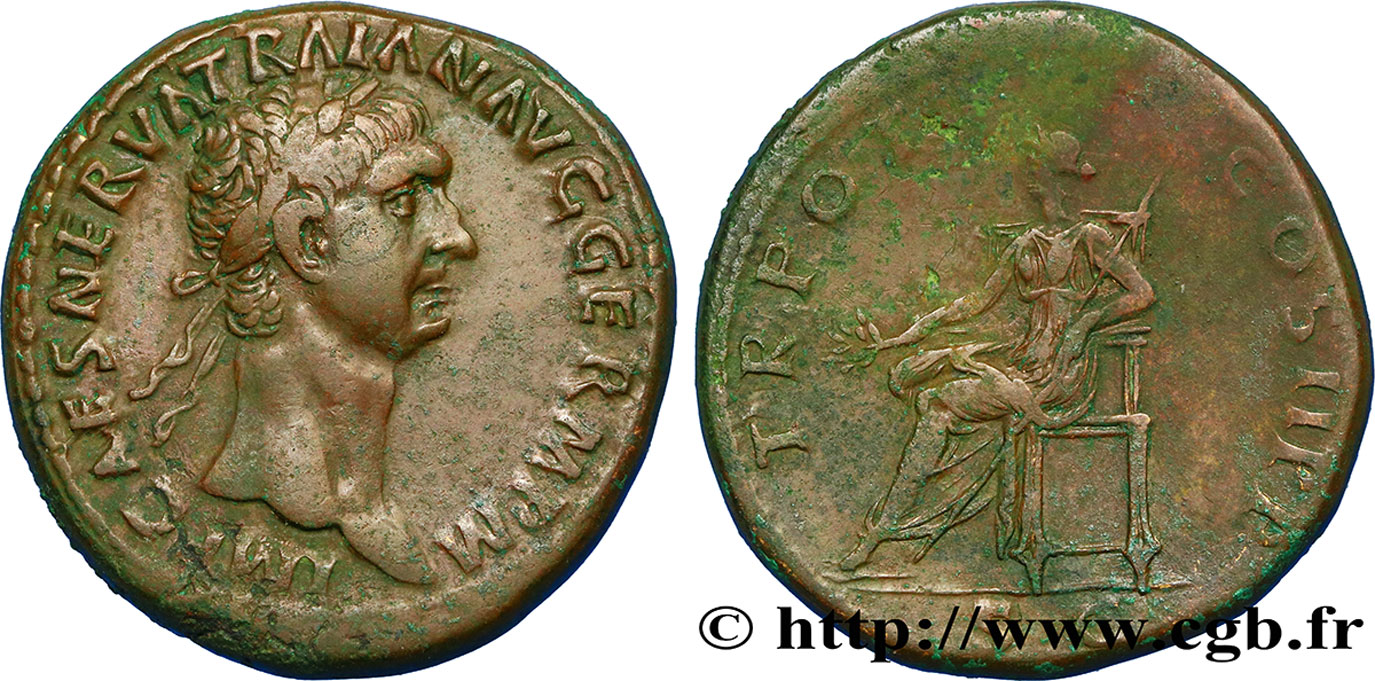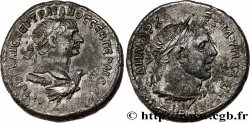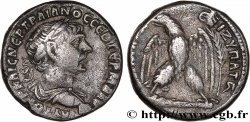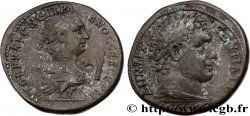brm_404092 - TRAJANUS Sesterce
Not available.
Item sold on our e-shop (2019)
Price : 750.00 €
Item sold on our e-shop (2019)
Price : 750.00 €
Type : Sesterce
Date: 101
Mint name / Town : Roma
Metal : copper
Diameter : 33 mm
Orientation dies : 6 h.
Weight : 26,74 g.
Rarity : R1
Officine: 2e
Coments on the condition:
Bel exemplaire avec un beau portrait et un revers de style fin malgré une faiblesse de frappe à 12 heures. Patine marron
Catalogue references :
Obverse
Obverse legend : IMP NERVA CAES TRAI-AN AVG GERM P M.
Obverse description : Tête laurée de Trajan à droite(O*).
Obverse translation : "Imperator Nerva Cæsar Traianus Augustus Germanicus Pontifex Maximus", (L’empereur Nerva césar Trajan auguste germanique grand pontife).
Reverse
Reverse legend : TR POT - COS II P P/ -|-// SC.
Reverse description : Concordia (la Concorde) drapée, assise à gauche, sacrifiant avec une patère de sa main droite et tenant une double corne d’abondance de la main gauche.
Reverse translation : “Tribunicia Potestate Consul iterum Pater Patriæ”, (Revêtu de la puissance tribunitienne consul pour la seconde fois père de la patrie).








 Report a mistake
Report a mistake Print the page
Print the page Share my selection
Share my selection Ask a question
Ask a question Consign / sell
Consign / sell
 Full data
Full data











